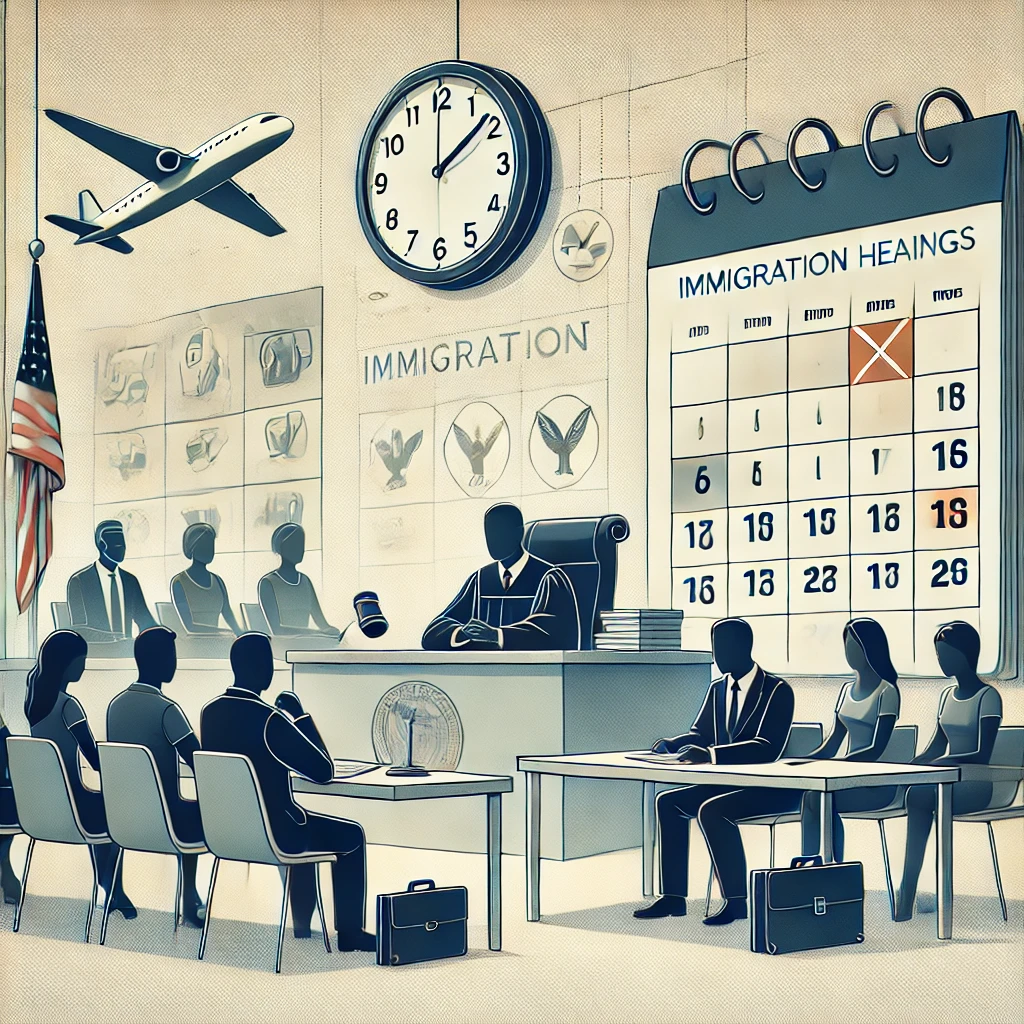
Understanding the Timeline Between Master Calendar and Individual Hearings in Asylum Cases
How long does it take to have an individual hearing after the first master calendar hearing in an asylum case?
Expert Answer:
The time it takes to have your individual (or merits) hearing after the first master calendar hearing in an asylum case can vary greatly. There is no set timeline because it depends on factors such as the court’s schedule, the complexity of your case, and the availability of immigration judges. However, here are some key considerations:
1. General Timeframe
- In some cases, the individual hearing may be scheduled within a few months of the master calendar hearing.
- In other cases, particularly in courts with heavy backlogs, it can take several years before the individual hearing is held.
- The current backlog in U.S. immigration courts is significant, with over 1.9 million pending cases as of 2024, which contributes to delays.
2. Factors That Influence the Timeline
- Court Location: Some immigration courts have longer backlogs than others. Urban areas like New York or Los Angeles typically experience longer delays compared to smaller jurisdictions.
- Case Prioritization: Certain cases, such as those involving detained individuals or urgent humanitarian concerns, may be prioritized and scheduled sooner.
- Judge Availability: The number of immigration judges available at your assigned court affects how quickly your case can proceed.
- Government Policy Changes: Shifts in immigration policies and priorities can also impact the scheduling of hearings.
3. Preparing for the Delay
- Gather Evidence: Collect and organize all necessary documents, such as identity papers, personal affidavits, and supporting evidence for your asylum claim.
- Work with Your Attorney: Regularly communicate with your attorney to ensure you’re fully prepared for the merits hearing.
- Stay Informed: Monitor your hearing date through the EOIR Automated Case Information System to stay updated on any changes.
While waiting for your individual hearing, use this time effectively to strengthen your case:
4. How to Check Case Status
- EOIR Automated Case Information
You can check the status of your case and upcoming hearing dates using the EOIR system. Simply enter your Alien Registration Number (A-Number) here:
Addressing Delays
If your hearing is significantly delayed and you face urgent circumstances (e.g., severe hardship or ongoing persecution in your home country), your attorney may request the court to expedite your case. Expediting a case, however, is not guaranteed and is subject to the court’s discretion.
Additional Resources:
1. EOIR Immigration Court Backlog Statistics
EOIR Immigration Court Backlog Statistics
2. U.S. Citizenship and Immigration Services (USCIS) Asylum Information
USCIS Asylum Information
3. American Immigration Council: Immigration Court Overview
American Immigration Council: Immigration Court Overview
Conclusion:
By understanding the potential delays and staying proactive, you can ensure that your case is prepared and ready when your hearing date arrives.

Oware Justice Advocates PC – Where Integrity Meets Advocacy
Your fight is our mission. Let us help you navigate the path to justice.
Let’s Get Started
Your legal challenges deserve personalized attention and innovative solutions. Contact Oware Justice Advocates PC today for a consultation and take the first step toward resolution and peace of mind.
355 South Teller Street, Suite 204,
Lakewood, CO 80226
(Visits to the office are strictly by appointment only)
303-514-6589

